
20 years of pioneer in xinjiang tourism for overseas travelers
Born Here, Know Best, Your Journey's Blessed

contact UsOn Wechat
About US
Xinjiang Tours
2006 - 2026 © All Right Reserved www.xinjiangtravel.org
The word "Bazaar" in Uyghur language means "market" and "trade place." The traditional bazaar used to take place only on Sundays, but now it is divided into two sections. One section is the livestock district, which is open only on Sundays, and the other is the ordinary district, which is especially busy on Sundays but open every day.
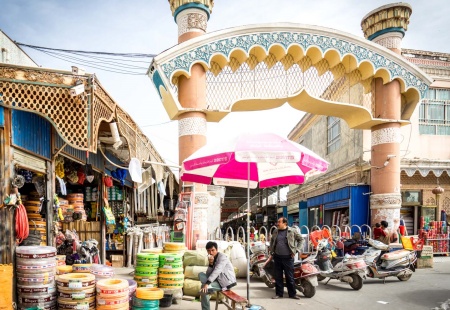
Kashgar is located on China's westernmost border, surrounded by several Central Asian countries, Pakistan, and the Kashmir region of India. It is a city with a population of about half a million people. Kashgar was the Silk Road crossroads of Central Asia. The Chinese government may aim to recreate its role as the modern commercial center for the entire large region. Despite these developments, the region remains an important commercial center for the poor and backward ethnic people of western Xinjiang. It is positioned within about 200 kilometers of Kyrgyzstan, Tajikistan, and Afghanistan, which are wealthy in minerals, and Pakistan and India with large markets. The modernization of the Karakoram Highway is underway to facilitate quick access for trucks going to Pakistan. However, the "Ancient Town of Kashgar," a Uyghur neighborhood and tourist site, is being quickly demolished and redeveloped into a modern area of the city. Yet, the inhabitants of the entire region remain comparatively poor and technologically backward, and the goods for sale in the markets, such as cattle, horses, carts, ethnic clothing, and crafts, are unusual in the modern world of supermarkets.
The city, known as "Kashi" in Chinese, has a long history. In the 19th century, it was considered a strategic area to control. While most of the people are Uighurs, many Chinese are moving in, and there are also other Muslim minorities. On Sundays, Chinese Uyghurs come to shop, and business people trade with people from other countries. By visiting the market, you can see businessmen from various places and get an idea of the culture and commerce of the entire Central Asian region. The market areas are bustling from morning until night, offering everything from horses and camels to food and handcrafted products. There are many market areas, but Sunday is a traditional market day when farmers and ranchers come to sell their products and people go out to shop. In various areas, there are farmers' markets, flea markets, animal markets, and meat markets. Dried fruit and other delicacies are also offered. People sell stacks of clothes, shoes, leather products, textiles, rugs, carpets, scarves, souvenirs, and other goods in an eclectic messy mix. There are plenty of stalls selling hats, as well as a place where people can ride horses to test them. The narrow streets are crowded with people herding animals or carrying them in cages, while others come in with bundles and sacks.
In general, only ethnic people or Muslim Chinese from Xinjiang come to trade in the markets, whereas regular Chinese usually don't participate. The people generally look like Turks, with light and dark skin tones. There is a wide variety of ethnic food available, and people can eat their fill for about 14 RMB or 2 USD. Those who have visited Muslim market bazaars in other countries claim that the Kashgar Sunday Market is one of the grandest and most fascinating in the world.
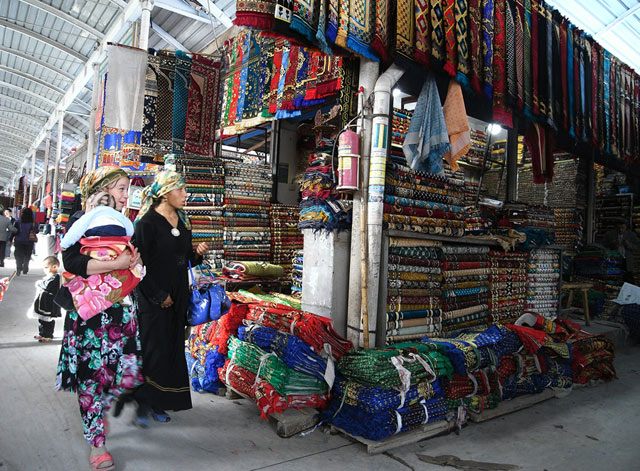
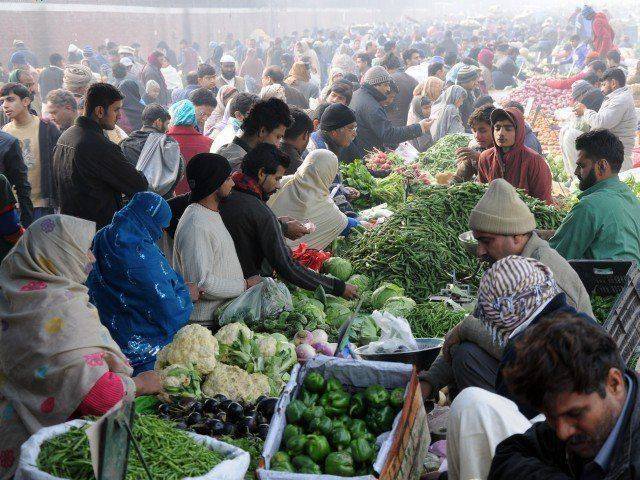
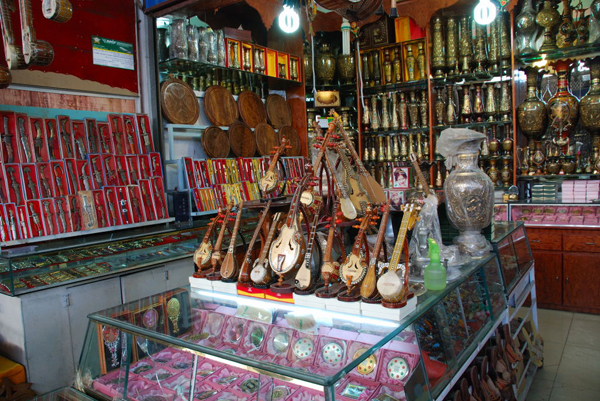
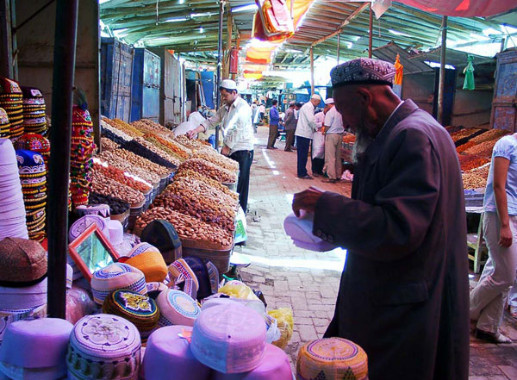
Are you interested in this tour?
This tour can be tailored.